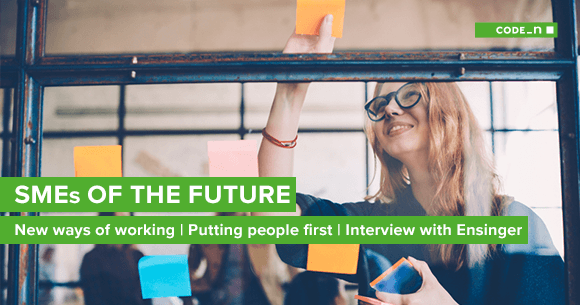NICO LUMMA: “MANY GERMAN STARTUPS ONLY TARGET THE GERMAN MARKET”NICO LUMMA: „VIELE DEUTSCHE STARTUPS ZIELEN NUR AUF DEN DEUTSCHEN MARKT“
Nico Lumma, Director of Social Media at Scholz & Friends in Hamburg, Germany, has been blogging for years and has not really been offline since 1995. Lumma chatted with Oliver Gassner about co-browsing, CloudFlare and Kindle Fire.
 Oliver Gassner: Hello Nico, please take a moment to introduce yourself to our readers.
Oliver Gassner: Hello Nico, please take a moment to introduce yourself to our readers.
Nico Lumma: Hi Oliver, My name is Nico Lumma, I’m 39 years old, I haven’t been offline since 1995, and I’m the Director of Social Media of the Scholz & Friends agency group. I’ve been blogging about everything that interests me at http://lumma.de since 2003.
OG: In the past twelve months, what was your biggest personal discovery on the web or in mobile communications?
NL: Hmm. Evernote and Spotify, but they’ve both been around a while already. So Google+.
OG: Do you have good ideas, or are you an innovator? And – what’s the difference?
NL: I’m not sure how to answer your question. I have good ideas – sometimes fantastic ones –, I innovate, and above all, I’m an initiator.
But I see that as a collaborative process, not as something individuals do in private. And depending on who’s involved in the brainwork, I take on different roles. Numerous factors need to come together for a good idea to become a good business idea. Overall, I would say that the team constellation is important, and that focusing on the essence of the idea is crucial – especially in the initial phase.
Of course, how quickly you can reach critical mass also matters, because the best business idea is useless if the market isn’t ripe for it.
OG: Why do most internationally successful web and mobile applications currently come from the U.S. – and only rarely from Europe?
NL: I think the question is more one of where the focus of a startup lies. Many German startups only target the German market, whereas Dutch or Scandinavian ones have an international focus from the outset because of their small domestic markets. Startups in the U.S. have the advantage of a larger network of founders and greater ease in reaching critical mass.
The fact that innovations are met with less skepticism in the U.S. than in Germany is certainly also relevant.
OG: In your opinion, who are currently the most creative people on the web and in the mobile sector? And why?
NL: I have a bad memory for names, so I’d rather mention companies – and thus teams – that I consider to be highly creative.
I really like Flipboard, because they have a completely new way of presenting information. I also think companies like CloudFlare are exciting because of their reinterpretation of the old CDN theme. But the biggest surprise for me was the Amazon Kindle Fire and the cloud-based Silk browser.
OG: What do you personally need to be creative?
NL: Space. Space to think, to let my thoughts wander, and to goof around.
OG: Does today’s agency landscape offer that space? Or does everything have to be lean?
NL: You have to work for that space time and again. At the moment, I get up a little earlier than usual to have time for myself and sort my thoughts before the kids wake up and I drive to the agency.
OG: Is a home office environment better for creativity, or do you need to be surrounded by people?
NL: A home office is nice from time to time, but I prefer being together with other people and thinking out loud – that’s the most inspiring.
OG: OK, psst, we promise we won’t tell – what’s the Next Big Thing on the web?
NL: Co-browsing – looking at the same things on the web with others in different locations.
OG: There was once a tool that took everything you surfed past and posted it to a kind of Twitter. Something like that? Or more like screen sharing, or the functions in the G+ Hangouts?
NL: More like Google+ Hangouts with screen sharing, for the web and mobile. It could be really great for shopping together, having fun, and for educational purposes.
OG: And finally, two fundamental questions: iOS or Android? Facebook or Google+? And why?
NL: Definitely iOS for me, because I think it’s more intuitive, and above all more beautiful. Otherwise, Facebook and Google+, but with different usage scenarios. Facebook is becoming increasingly private for me, while I use Google+ to curate information.
OG: Thanks for the interview.
NL: You’re welcome.Nico Lumma arbeitet als Director Social Media bei Scholz & Friends in Hamburg, bloggt seit etlichen Jahren und ist eigentlich seit 1995 nicht mehr offline gewesen. Im digitalen Gespräch mit Oliver Gassner redet er über Co-Browsing, CloudFlare und Kindle Fire.
 Oliver Gassner: Hallo Nico, würdest du dich unseren Lesern bitte kurz vorstellen?
Oliver Gassner: Hallo Nico, würdest du dich unseren Lesern bitte kurz vorstellen?
Nico Lumma: Hallo Oliver, mein Name ist Nico Lumma, ich bin 39 Jahre alt, seit 1995 nicht mehr offline und arbeite bei der Agenturgruppe Scholz & Friends als Director Social Media. Seit 2003 blogge ich auf http://lumma.de/ über alles, was mich interessiert.
OG: Was ist für Dich die Web- oder Mobile-Entdeckung der vergangenen 12 Monate?
NL: Hmm. Evernote und Spotify, aber beides ist schon älter. Also Google+.
OG: Hast du gute Ideen oder bist du Innovator? Und: Was ist der Unterschied?
NL: Ich weiß nicht, wie ich Deine Frage beantworten soll. Ich habe gute Ideen, manchmal auch phantastische, bin Innovator, aber vor allem Impulsgeber.
Ich sehe das als gemeinsamen Prozess, nicht als Thema eines Einzelnen im stillen Kämmerlein. Und je nachdem, wer mitmacht beim Hirnen, nehme ich unterschiedliche Rollen ein. Damit aus einer guten Idee auch eine gute Geschäftsidee wird, müssen viele Faktoren zusammenkommen. Generell würde ich sagen, dass die Teamkonstellation wichtig ist und die Fokussierung auf das Wesentliche der Idee insbesondere in der Startphase eine sehr wichtige Rolle spielt.
Natürlich spielt auch eine Rolle, wie schnell man eine kritische Masse erreichen kann, denn die beste Geschäftsidee nutzt nichts, wenn der Markt noch nicht so weit ist.
OG: Weshalb kommen die meisten international erfolgreichen Web- und Mobile-Anwendungen derzeit aus den USA – und nur ganz wenige aus Europa?
NL: Ich glaube, die Frage ist eher, welchen Fokus ein Startup hat. Viele deutsche Startups zielen nur auf den deutschen Markt, während gerade skandinavische oder holländische Startups aufgrund der geringen Größe des Heimatmarktes gleich einen internationalen Fokus haben. Startups aus den USA haben den Vorteil eines größeren Gründernetzwerkes und einer leichter zu erreichenden kritischen Masse.
Sicherlich spielt auch eine Rolle, dass Neuerungen in den USA weniger skeptisch gesehen werden als derzeit in Deutschland.
OG: Welche Personen sind für Dich aktuell die kreativsten im Web- und Mobile-Bereich. Und weshalb?
NL: Ich kann mich jetzt auf mein schlechtes Namensgedächtnis berufen – ich würde eher Firmen und damit Teams erwähnen, die ich besonders kreativ finde.
Zum einen gefällt mir Flipboard sehr gut, weil hier Informationen völlig neu aufbereitet werden. Zum anderen finde ich Firmen wie CloudFlare spannend, die das alte Thema CDN neu interpretieren. Aber am meisten hat mich Amazon mit der Vorstellung des Amazon Kindle Fire und dem cloud-basierten Browser Silk überrascht.
OG: Was brauchst Du persönlich, um kreativ zu sein?
NL: Freiräume. Zum Denken, zum Gedanken Schweifenlassen, zum Rumspielen und zum Spinnen.
OG: Hat man die in der heutigen Agenturlandschaft? Oder muss da alles ‘lean’ sein?
NL: Die muss man sich immer wieder von Neuem erarbeiten. Ich stehe derzeit etwas früher auf als sonst, um morgens Zeit für mich und zum Sortieren meiner Gedanken zu haben, bevor die Kinder wach sind und ich in die Agentur fahre.
OG: Macht Homeoffice kreativer oder brauchst du Menschen um dich?
NL: Homeoffice ist ab und zu ganz nett, aber ich sitze am liebsten mit anderen Menschen zusammen und denke laut nach – das ist am inspirierendsten.
OG: OK, psst, wir verraten es auch keinem: Was wird das nächste große Ding im Web?
NL: Co-Browsing – sich gemeinsam an verschiedenen Orten Dinge im Web anzugucken.
OG: Da gab es doch mal so ein Tool, das einfach alles, wo man vorbeisurfte automatisch in eine Art Twitter warf. Sowas? Oder eher wie Screensharing oder die Funktionen in den G+-Hangouts?
NL: Eher Google+ Hangouts mit Screensharing, für web und mobile. Das kann ganz toll werden, zum gemeinsamen Einkaufen, zum Spaß haben und zum Lernen.
OG: Und zum Schluss zwei Gewissenfragen: iOS oder Android? Facebook oder Google Plus? Und warum?
NL: Definitiv iOS für mich, weil ich die Benutzung einfach intuitiver finde und vor allem auch schöner. Ansonsten Facebook und Google+, aber mit anderen Nutzungsszenarien. Facebook wird eher privater werden bei mir, Google+ nutze ich zum Kuratieren von Informationen.
OG: Danke für das Gespräch.
NL: Sehr gerne.






Write a comment